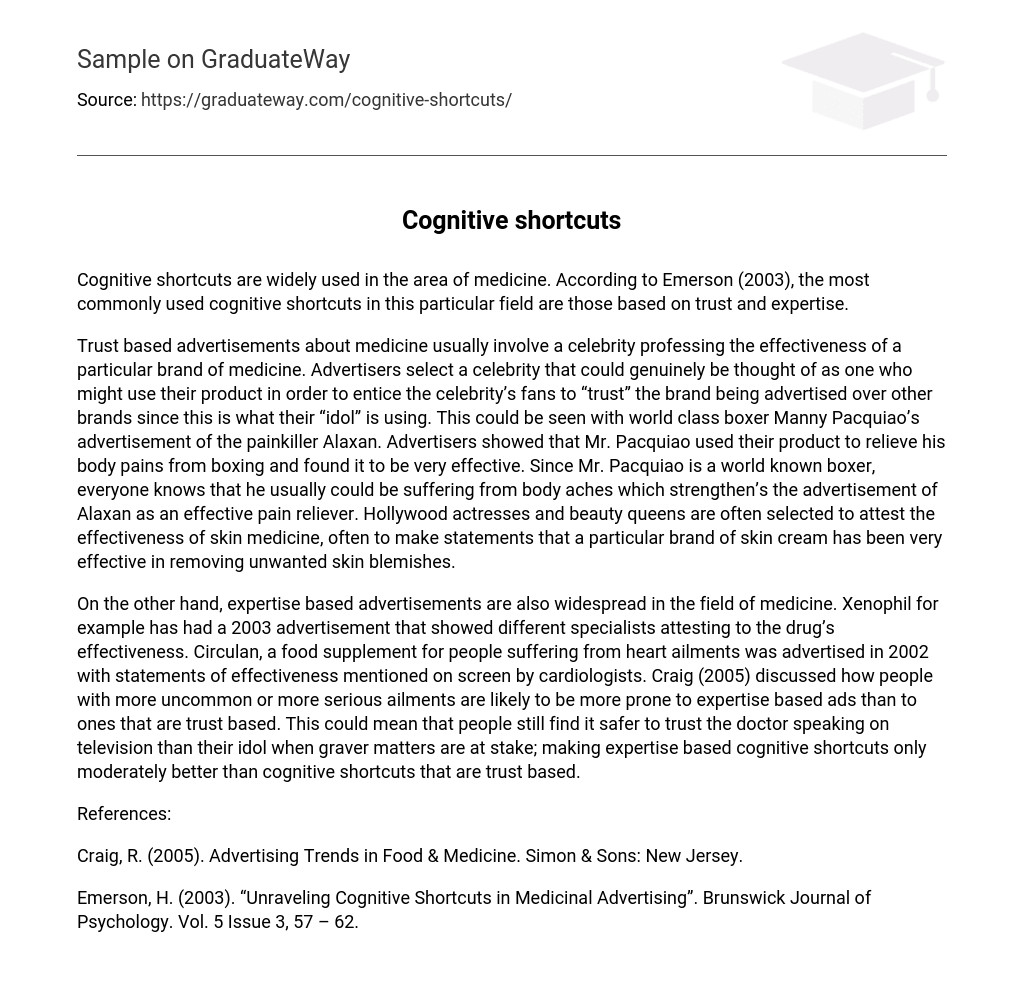According to Emerson (2003), the most commonly used cognitive shortcuts in this particular field are those based on trust and expertise. Trust based advertisements about medicine usually involve a celebrity professing the effectiveness of a particular brand of medicine. Advertisers select a celebrity that could genuinely be thought of as one who might use their product in order to entice the celebrity’s fans to “trust” the brand being advertised over other brands since this is what their “idol” is using.
This could be seen with world class boxer Manny Pacquiao’s advertisement of the painkiller Alaxan. Advertisers showed that Mr. Pacquiao used their product to relieve his body pains from boxing and found it to be very effective. Since Mr. Pacquiao is a world known boxer, everyone knows that he usually could be suffering from body aches which strengthen’s the advertisement of Alaxan as an effective pain reliever. Hollywood actresses and beauty queens are often selected to attest the effectiveness of skin medicine, often to make statements that a particular brand of skin cream has been very effective in removing unwanted skin blemishes.
On the other hand, expertise based advertisements are also widespread in the field of medicine. Xenophil for example has had a 2003 advertisement that showed different specialists attesting to the drug’s effectiveness. Circulan, a food supplement for people suffering from heart ailments was advertised in 2002 with statements of effectiveness mentioned on screen by cardiologists.
Craig (2005) discussed how people with more uncommon or more serious ailments are likely to be more prone to expertise based ads than to ones that are trust based. This could mean that people still find it safer to trust the doctor speaking on television than their idol when graver matters are at stake; making expertise based cognitive shortcuts only moderately better than cognitive shortcuts that are trust based.
References
- Craig, R. (2005). Advertising Trends in Food & Medicine. Simon & Sons: New Jersey.
- Emerson, H. (2003). “Unraveling Cognitive Shortcuts in Medicinal Advertising”. Brunswick Journal of Psychology. Vol. 5 Issue 3, 57 – 62.





